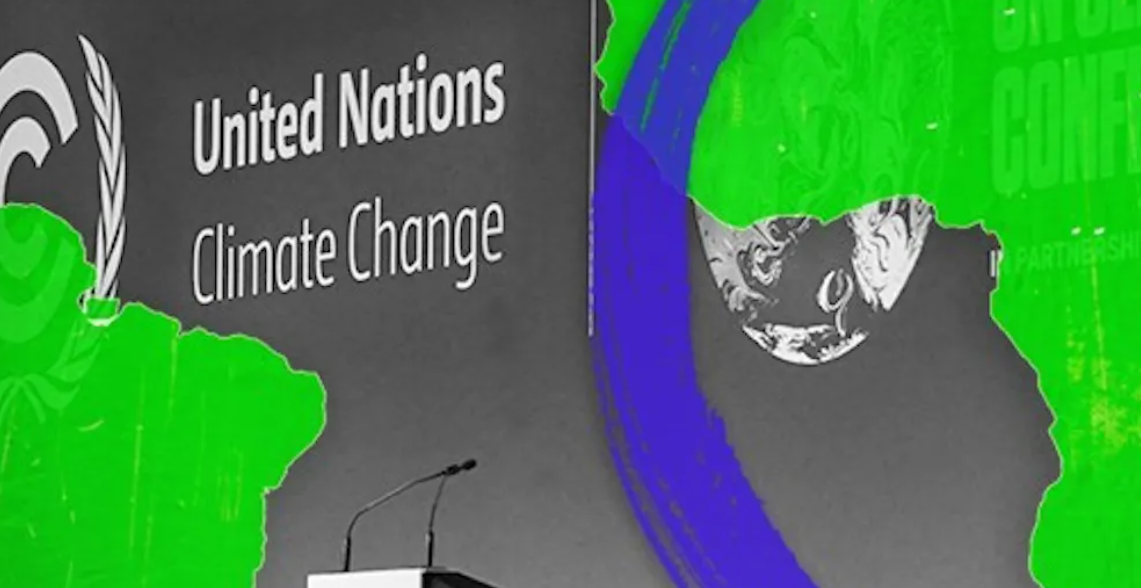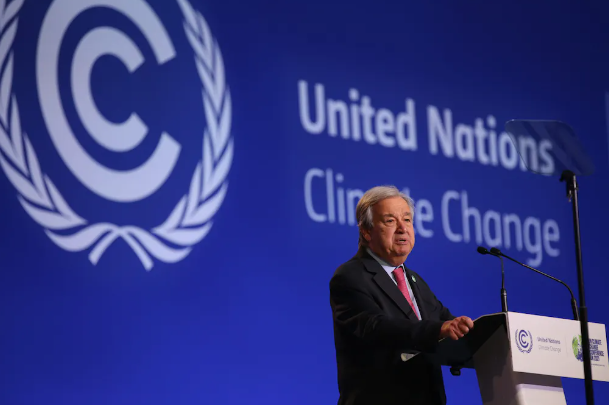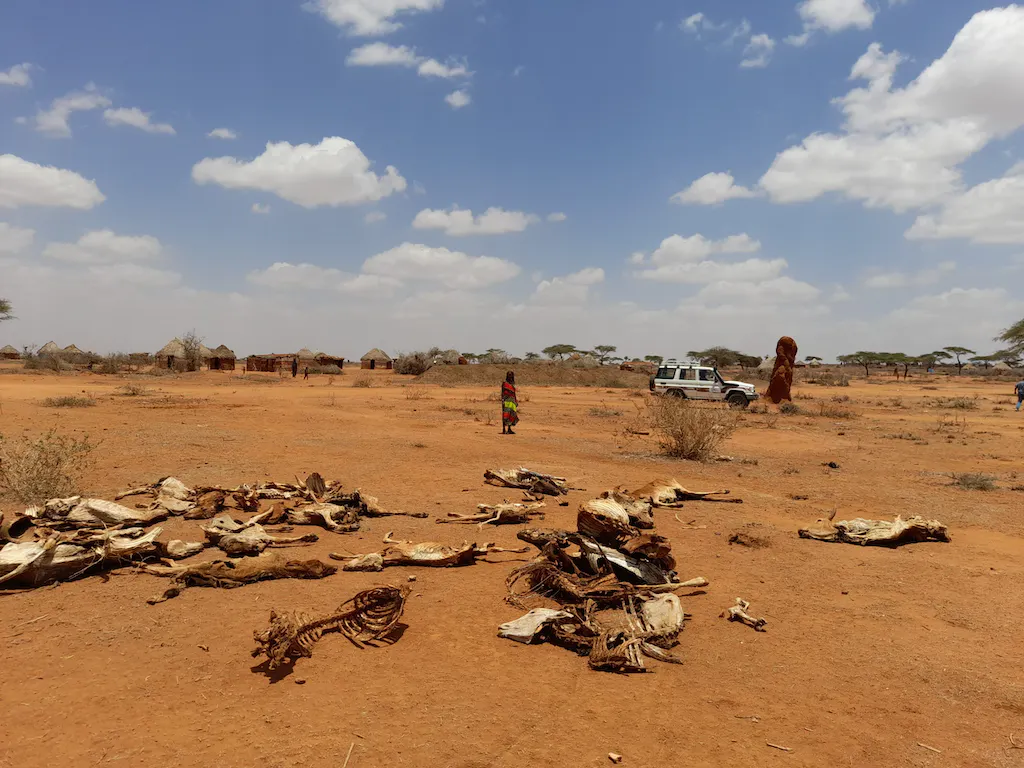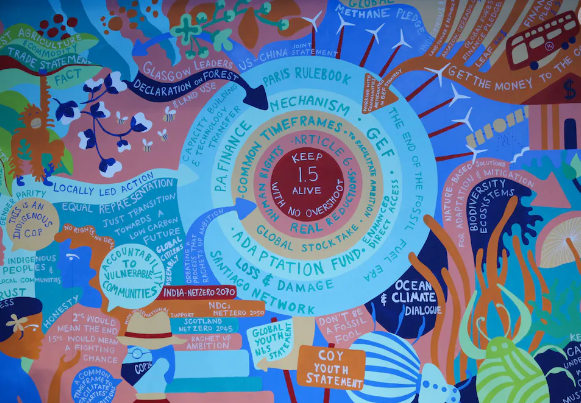COP 27 Q&A: Global Impacts & Expected Climate Outcomes

By Martha Hodgkins, October 31, 2022. Originally published by United Nations Foundation.
Ahead of the next United Nations Climate Conference, known as COP 27, the UN Foundation’s Vice President for Climate and the Environment, Pete Ogden, shares his take on the key issues to watch and what’s needed to keep the Paris Agreement goals within reach.
Question: What is the energy going into COP 27? Is there a theme or focus?
Pete Ogden: The upcoming COP has been billed as both the “implementation COP” — to underscore the need for action — and the “Africa COP,” as the host country, Egypt, wants to focus on the needs of the African continent.
On the implementation side, COP 27 did receive an enormous boost of momentum over the past year when the U.S. passed historic climate legislation. And there were other wins as well: Australia increased its own climate ambition, as did India. But this COP comes at a time when the impacts that climate change is already inflicting on countries and communities around the world have never been more apparent, including very much in Africa. Some of these impacts will be irreparable, and of course, part of the tragedy is that, all too often, they’re being inflicted on people who had little to nothing to do with creating this crisis. And in light of Russia’s invasion of Ukraine, which created energy shortages and food price spikes that are having cascading effects around the globe, these worsening climate impacts are now being compounded by interwoven energy and food crises. So the world is coming together at COP 27 at a moment when the climate crisis could not be more evident in Africa and around the world, and it’s up to countries to show us what they’re doing to address it.
Can you tell us what the Secretary-General’s High-Level Expert Group is, and what its role is in global climate change efforts?
Last year, at COP 26 in Glasgow, UN Secretary-General António Guterres announced the creation of a new High-Level Expert Group focused on improving transparency and accountability around the multitude of commitments that subnational and private sector actors have made to achieve net-zero greenhouse gas pollution. Since then, the Secretary-General appointed a very distinguished group of leaders to develop criteria and to better assess and measure progress at the subnational and private sector levels, all toward aligning efforts to achieve net-zero emissions by 2050. We’re very much looking forward to the recommendations that this group will bring forward and to seeing them put into practice.

What would success look like at this COP?
This is a more difficult COP to measure because it doesn’t bring with it a specific major deadline or decision point upon which success hinges. But it’s abundantly clear that the world is not on course right now to meet the goals of the Paris Agreement. The onus is therefore on countries to demonstrate that they’re taking additional actions to get us back on track. We are going to be looking for clear signs that countries are going further, faster. We’re looking for signs of credible political will even at a time of so much geopolitical turmoil. Countries have to remain laser focused and understand that the clean energy transition is their way through to the other side.
There’s a huge question mark hanging over the COP as to what China is prepared to deliver and how it will demonstrate its commitment to taking necessary steps to achieve the 1.5°C goal. In previous years, we often saw China use the annual UN General Assembly in September as an opportunity to preview top-line climate announcements, such as ending its practice of publicly subsidizing overseas coal. This year, we didn’t hear anything. China is the world’s largest emitter of greenhouse gases, and the U.S.-China relationship has become very cold due to issues unrelated to climate. China is capable of contributing an enormous amount to solving climate change, but I do worry about its silence at the General Assembly. I will be closely watching to see if China comes to this COP with new initiatives to help get us on a path to climate sustainability.
Another thing to keep an eye on: While the COP is taking place in Egypt, a G20 summit of the world’s major emitters will be taking place in Indonesia, dealing with a whole range of global crises. The symbolism of these two meetings occurring at the same time is striking. At the COP, we will be watching to see whether G20 leaders are able to demonstrate that they understand, and are prepared to address, the underlying climate emergency that is fueling so many of the immediate global crises they will be grappling with at the G20.
Are there any particularly Africa-centric issues that will be highlighted this year, given that the COP is being held in Egypt?
Africa is emblematic of the fact that each day of delayed action from the world’s major polluters is another day of devastation for people who are least responsible for climate change. At every COP, the Intergovernmental Panel on Climate Change formally presents the results of its most recent research to country negotiators. This year, the findings are particularly stark, especially for Africa, so the context becomes really important. Severe climate-related impacts are already hitting Africa hard.
One of the issues that’s going to be fiercely debated at COP 27 is not just the problem of developed economies meeting their preexisting financial commitments, which they have yet to do, but also if and how developed economies will address the costs that are being incurred by developing economies. These costs go beyond what we conventionally think of as adaptation, like the need to rebuild from a climate-fueled natural disaster or to relocate due to sea-level rise. In COP lingo, this category is referred to as “loss and damage,” and it will be a hotly debated topic in Sharm el-Sheikh, Egypt, where COP 27 will take place.

Beyond COP 27, what can we expect to see in the next phase of climate action and diplomacy?
Every year is a race between unprecedented global efforts to decarbonize and reduce our greenhouse gas emissions, and the unrelenting accumulation of emissions that are causing ever more pain for people around the world. We’re still trying to get on top of the crisis, to see the scale of damage decline.
In the next phase of climate action, I think we’ll see several things. One is the ripple effect from the passage of historic climate legislation in the U.S., which is injecting $369 billion into the effort to decarbonize the U.S. economy. The second is a growing — and overdue — recognition of the need to finance and scale up investment in adaptation measures in countries around the world. We’re on a path of increased suffering due to our failure to get on top of climate change sufficiently over the past two decades. So I think we are going to see more attention to what we need to do to cope with the impacts of climate change that are growing in severity.
"Every year is a race between unprecedented global efforts to decarbonize and reduce our greenhouse gas emissions, and the unrelenting accumulation of emissions that are causing ever more pain for people around the world."
Pete Ogden
Vice President for Climate and the Environment, UN Foundation
Next year, the UN’s Sustainable Development Goals (SDGs) are going to pass through their midpoint; they are supposed to be achieved by 2030. In many respects the SDGs are themselves indicators of our relative success, or lack thereof, in meeting the climate challenge. The midpoint presents a huge opportunity to show how we can bring a really integrated approach to the climate challenge and its intersecting issues, like food security, as we work to make a global economic shift toward clean energy.
In 2023, there will also be a global stocktake, which is a formal process in which all signatory countries assess progress toward achieving the Paris Agreement goals. This will be a major indicator of what we have and have not achieved, as well as an important moment of self-reflection — and then, hopefully, intensified action. It’s going to show us the extent to which we need to get ourselves back on the correct trajectory toward a limit of 1.5°C warming.

How many COPs have you attended?
I believe COP 27 will be my 10th.
COPs have been taking place for more than a quarter of a century. Is the glass half full or half empty?
I think it’s in the eye of the beholder. I mean, there are incredible signs of progress. If you look at where we were, where the technology costs are, where the political will is — there are pockets of activity that make me optimistic and totally convinced that this is a fight we can win.
On the other hand, we have not yet decisively bent the curve on global emissions, and it’s inflicting so much damage. And we can’t just tread water here. We need to fundamentally decouple our greenhouse gas emissions from economic growth and begin the steep descent that we need — and that I believe we can get to — but we need to keep fighting.
MORE ON COP 27
This is part of a series, featuring perspectives and ideas from UN Foundation’s climate experts on key climate issues on the agenda at COP 27. Catch up on news, events, and other content in this series.